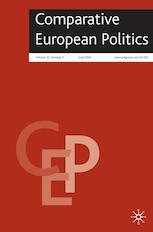Dans la même rubrique
- CEVIPOL
- FR
- Publications
- Articles
- Publiés en 2024
-
Partager cette page
How does the EU seek to encourage change in national justice systems? A framework of coordinative and coercive Europeanization at work
By Ramona Coman
ÉDITION
Palgrave macmillan
COLLECTION
Comparative European Politics
LIEN
COLLECTION
Comparative European Politics
LIEN

Abstract
A decade of crises has changed the EU’s modes of governance and power relations between institutions. By the same token, the rule of law crisis has reshaped the ways the Union ‘hits home’, or in other words, the ways it Europeanizes its Member States. This article looks at how the EU's responses to this ongoing crisis has led to the institutionalization of new modes of Europeanization. How does the EU seek to shape the national justice systems of its Member States? This article proposes a framework that conceptualizes two modes of top-down Europeanization: coordinative and coercive. Drawing on the analysis of policy tools established in response to the rule of law crisis, it shows how coordinative Europeanization strengthens the ability of the Commission to shape national agendas (power to) and how coercive Europeanization empowers the EU to take binding decisions that impact Member States (power over). Coercive and coordinative Europeanization complement each other and are supported by specific mechanisms such as dialogue, persuasion and negotiation between the Commission and Member States.
Mis à jour le 4 juillet 2024
